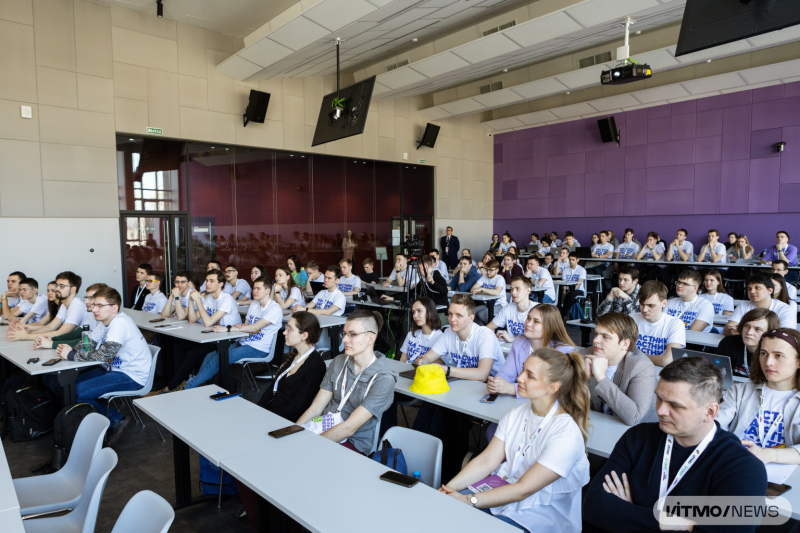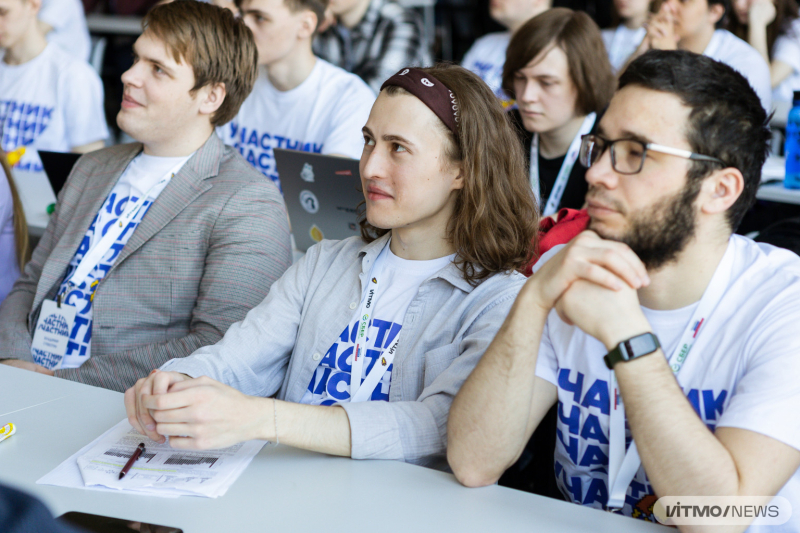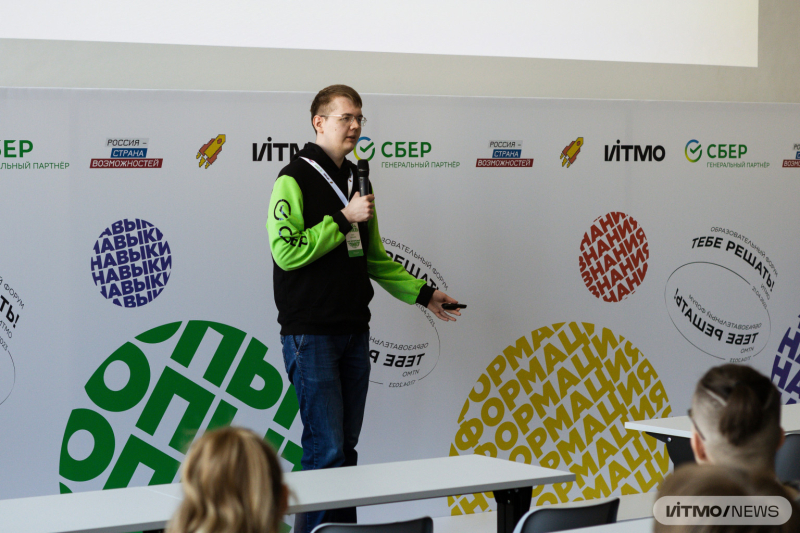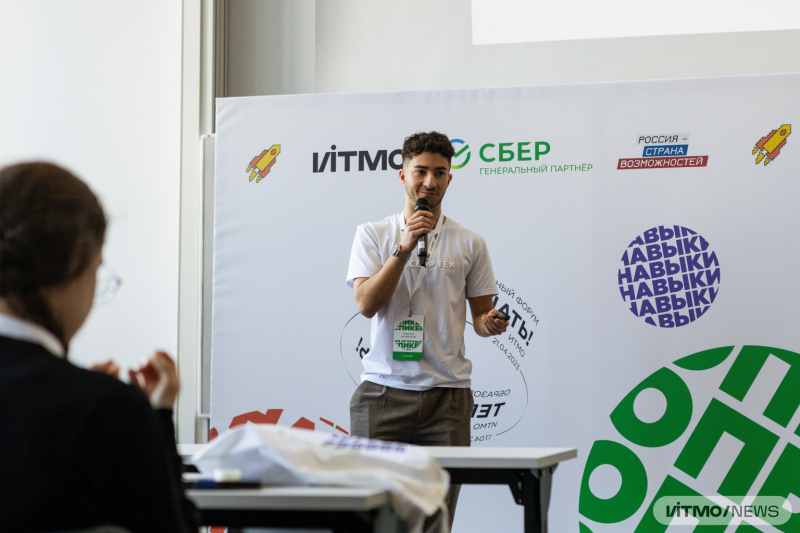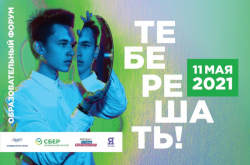This year, the forum brought together 120 university students from all over Russia, from Moscow to Vladivostok.
An eventful week is ahead, with workshops and lectures on programming, cybersecurity, robotics, launching startups, and building a career. Moreover, there will be an opportunity to chat with experts from ITMO and leading Russian companies, including Sberbank, the event’s key partner.
At the forum, students boost their soft and hard skills, network, and get inspired for new projects, while exploring ITMO and St. Petersburg.
“This forum is not just about lectures by leading experts. It’s about meeting like-minded people, trying out different roles in teamwork, and coming up with ideas that can grow into something more. New technologies and products can only be born at the intersection of different skills and competencies. Now, at ITMO, right in the heart of St. Petersburg, this event has brought together students from across the country, with different backgrounds. I am certain that our participants will dive into the creative atmosphere of our university and city, identify new areas for growth in their career, and find inspiration for new big projects,” said Daria Kozlova, ITMO’s First Vice Rector and head of the university’s Development Strategy.
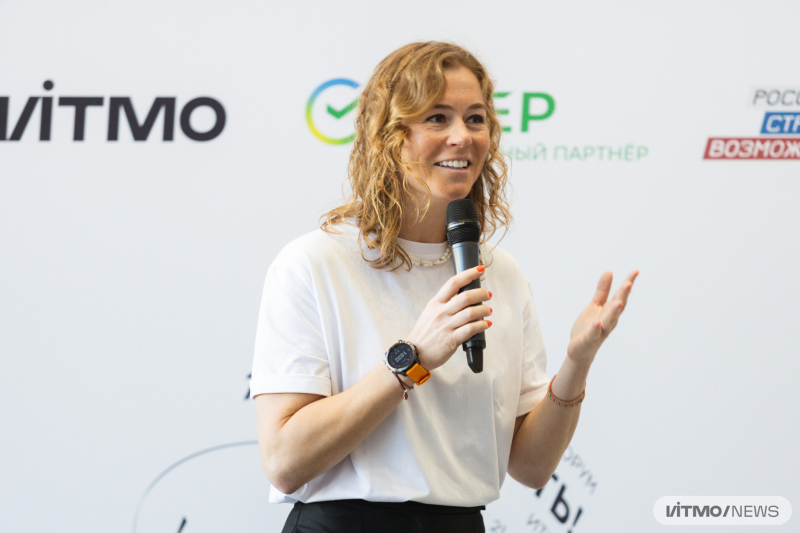
Daria Kozlova at the forum. Photo by Dmitry Grigoryev / ITMO.NEWS
All of the skills that they pick up during the forum, the participants will get to apply not only on study projects, but on real-life cases – if they decide to build a career at Sberbank.
“Every year, the forum brings together the country’s top students, and we as organizers strive to provide the most useful event program. This time, Sberbank’s experts will present workshops and lectures on hard and soft skills in IT development. We wish every participant to learn, find their inspiration, look for new opportunities – and come intern at Sberbank. Technologies are more and more incorporated into our lives and our future depends on the way we work with their potential. I am confident that together we will make the world a better place!” shared Andrey Ocheretny, the director of the Center for Academic Partnerships at Sberbank.
Riding the wave of new technologies
Among the first events of the forum was a lecture by Andrey Sebrant, the director for strategic marketing at Yandex, on trends that change the course of history.
One such wave of trends in IT was the internet. Just 30 years ago, it was hard to imagine that we would be able to chat with people from all around the world online. Now, however, metaverses are the talk of the town – these are essentially virtual spaces where people use VR technologies to interact with each other and digital objects via their avatars.
According to Andrey Sebrant, we already live in a metaverse, a superposition of the digital and physical worlds. For instance, we are used to paying for our purchases without withdrawing money from ATMs or controlling appliances in a smart home with only our voices.
All of these things used to belong in sci-fi novels and are now accessible to anyone thanks to AI. As AI and associated technologies, including computer vision, natural language processing, and driverless cars, keep developing, we will have even more opportunities. That’s why present-day students will become the ones who catch the nascent wave of new technologies and create something new that we haven’t explored before.
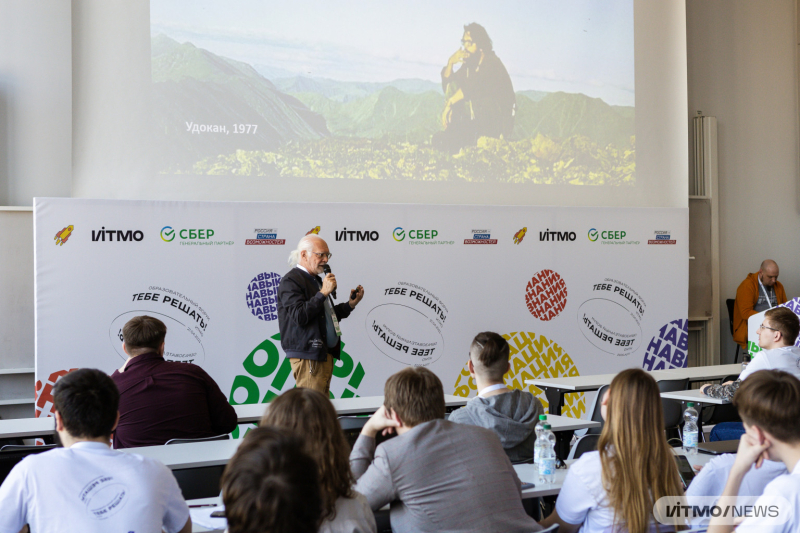
Andrey Sebrant's lecture at the forum. Photo by Dmitry Grigoryev / ITMO.NEWS
Advantages of using robots
We have long gotten used to e-commerce – making purchases and paying for them online. Humans are still involved in the process, as they handle assembling packages and delivering them to your door. But in the near future, we may want to outsource these tasks to robots. Such technologies are already in the works at the Sberbank Robotics Laboratory.
At the forum, Mikhail Vladimirov, a domain leader at Sberbank’s Robotics Laboratory, spoke about his team’s achievements. For instance, whereas previously warehouse personnel had to spend about 80% of their time walking around and assembling packages, robotic arms now locate the necessary items and place them inside self-driving shuttles that then move the goods to an employee, who simply checks the packages for any errors. This new system saves a lot of time (a human can complete 80 orders per hour, while robots do up to 500), and it can be installed at warehouses of various shapes and sizes.
Delivery robots in development. In fact, some of them are already in use. For example, the petrochemical company Sibur uses such robots to transport dangerous chemicals, while VIZ-Stal, a steel producer, uses one to inspect their production lines for safety hazards. Another possible application for robots is as security guards, which could patrol areas inaccessible to humans.
According to the forum participants, the lectures helped them discover new ways of approaching these issues.
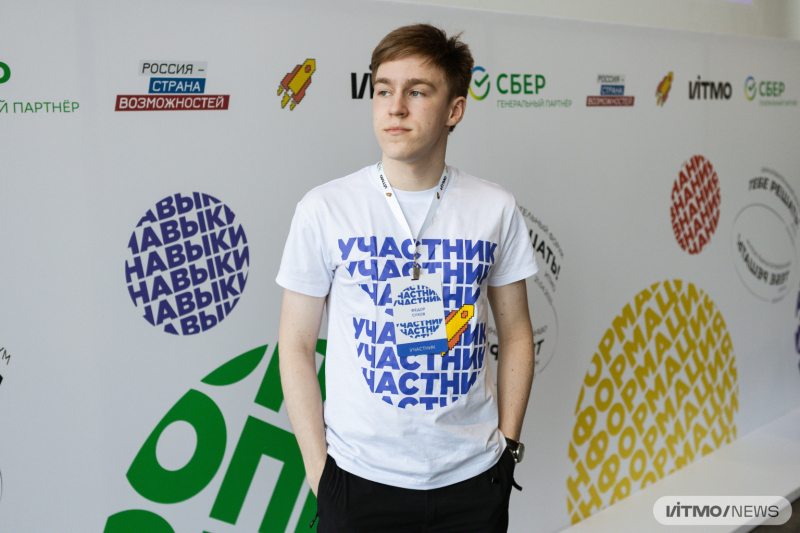
Fyodor Sukhov. Photo by Dmitry Grigoryev / ITMO.NEWS
“The forum’s first day proved to be exciting and engaging, thanks to ITMO. The lecture by Andrey Sebrant had me thinking about IT both from the viewpoint of a manager and from within the development process. I also really enjoyed the opportunity to talk to the speakers after their presentations, having learned new things about developing products for corporate clients from the Sberbank team. I also spoke with Mikhail Vladimirov about the lab’s approach to designing robots, their features and system requirements. This was particularly interesting to me, as my thesis is about developing a stationary medical robot,” said Fyodor Sukhov, a fourth-year student of the Tomsk Polytechnic University’s School of Computer Science & Robotics.
Aside from delivering lectures, the speakers also shared their stories of applying their particular skills to solve various tasks and how it influenced their career trajectories. Among the experts were ITMO students who spoke about working for a major company while still studying at university.
How to apply your IT skills
Start a career in IT by applying for a tech-related job. A PhD student at the Faculty of Software Engineering and Computer Systems, Ivan Shirokov began working as an intern at Sberbank while he was enrolled in a Master’s program. Now, he is a lead engineer at Sberbank’s corporate clients' division, where he is responsible for assembling and organizing databases. Another example is Rafael Dzhabbarov, an ITMO student and an analyst specializing in decision support models at one of Sberbank’s regional training centers. Studying does not interfere with his work, which consists of analyzing data to discover trends that could be used to improve company performance. If you are looking for an internship yourself, you can try messaging Sberbank’s job application bot on Telegram.
Start an interdisciplinary scientific partnership. As suggested by Vladimir Vinogradov, head of ITMO’s ChemBio Cluster, IT specialists collaborating with biologists and chemists can result in solutions to various complex problems. For instance, machine learning algorithms are already being used to study protein structures, design medications, and even teach neurons to play computer games. Meanwhile, ITMO scientists managed to create the world’s first nanozyme modeling platform. This technology can be used to predict the properties of nanozyme catalytic reactions (such as reaction rate and the affinity of its compounds), which saves a lot of time when conducting experiments.
Launch a startup. According to Andrey Anfinogenov, the dean of the Faculty of Technological Management and Innovations, you can try starting your first business while at university, with fellow students becoming your colleagues. First off, look for an expert who is willing to help you understand the market. Additionally, analyze failed startups with ideas that were similar to yours in order to avoid making the same mistakes. Then, set a clear achievable project goal, formulate your company values, and build your team according to them.
“I personally found Andrey Anfinogenov’s lecture on launching startups the most useful. I know how to develop things but have no idea how to sell them. This knowledge would have been helpful to me when I had been trying to promote my products. For example, I created an app that supports property owners of three large apartment complexes in Astrakhan. People can use it to report a malfunction to the property management company or contact their housemates to see if anyone has encountered a similar problem. This cuts down on a number of identical reports, while allowing management companies to easily promote their services, conduct surveys, and contact property owners,” said Zagidin Selimov, a fourth-year student at the Astrakhan State Technical University.
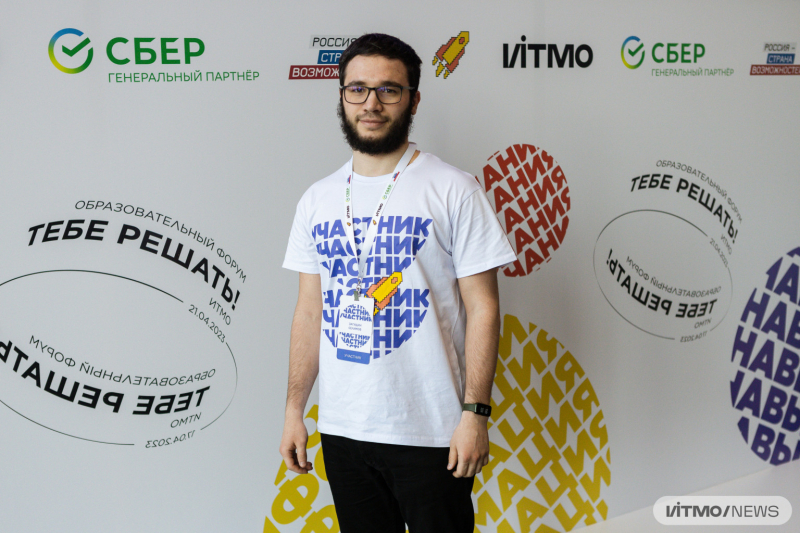
Zagidin Selimov. Photo by Dmitry Grigoryev / ITMO.NEWS
You can access the recordings of every lecture from the first day of the It’s Your Call! forum via the link (in Russian).
